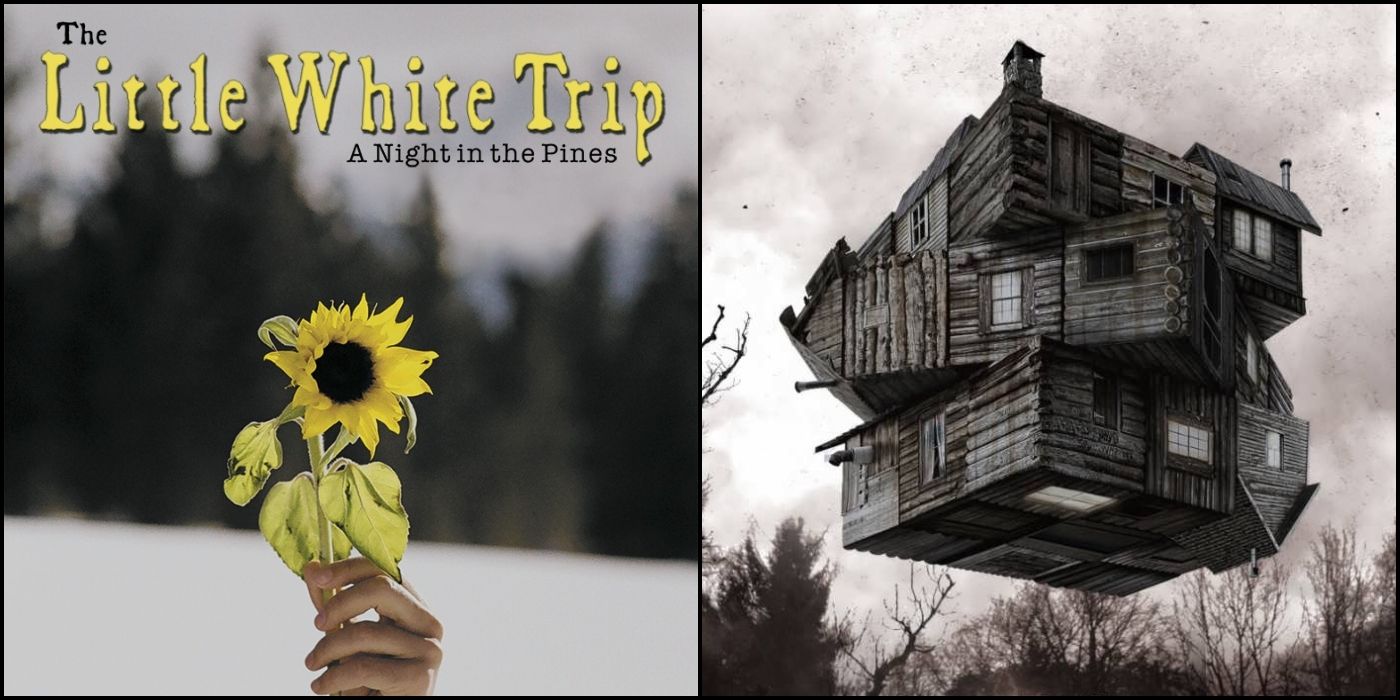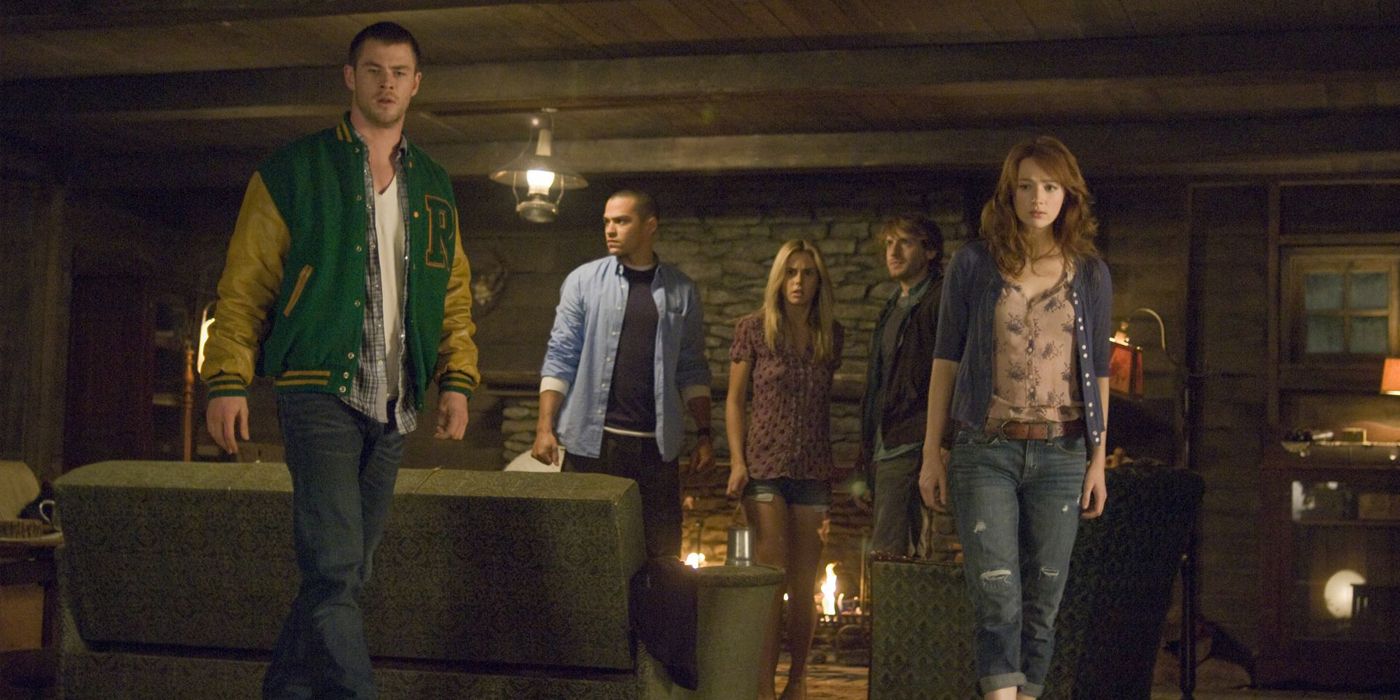In 2015 the author of a book called The Little White Trip: A Night In The Pines sued the filmmakers behind The Cabin In The Woods - here's the lawsuit explained. The idea of a group of teenagers heading off a remote cabin and being slaughtered one by one is a well-known horror trope and can be seen in movies ranging from Friday The 13th to Eli Roth's Cabin Fever.
The Evil Dead franchise is probably the most popular example of this concept, with the original Sam Raimi movie featuring five friends heading off for a relaxing weekend in a cabin, only for a demonic force in the woods to emerge and spoil those plans. The first movie was a super low-budget independent effort, and Raimi essentially remade the film with 1987's Evil Dead 2, which featured more of a comic tone.
A remake of Evil Dead also arrived shortly after the release of The Cabin In The Woods, a long-delayed meta-horror film directed by Drew Goddard and co-written by Joss Whedon (Firefly). While the film's setup bears similarity to something like Friday The 13th, it soon subverts those expectations and evolves into something even crazier. The film received rave reviews upon release for its commentary on the genre and for being a genuinely entertaining piece of work. Then in 2015 the author of a novel called The Little White Trip: A Night In the Pines filed a lawsuit against Goddard, Whedon, Whedon's production company Mutant Enemy and Lionsgate, claiming The Cabin In The Woods infringed upon his work.
Author Peter Gallagher claimed in his lawsuit The Cabin In The Woods bore a striking similarity to his self-published work The Little White Trip: A Night In the Pines, which he outlined in the suit. The novel is also a meta-commentary on the genre, with five friends heading to an isolated cabin and being picked off one by one. The main character comes to realize they're being watched by third parties, with the end twist revealing they're unwittingly taking part in a reality horror film, with events being orchestrated by the filmmakers for the sake of inducing real fear in the "performers." The book ends with the movie's director explaining how each murder was faked and how the production was staged.
The Little White Trip: A Night In The Pines lawsuit outlined other ways The Cabin In The Woods was similar, including the basic setup, character traits, and the sequence of events in the story. The lawsuit was ultimately dismissed in late 2015, however, with the Judge deciding that while the book and movie shared a premise, they were executed in a totally different ways.


